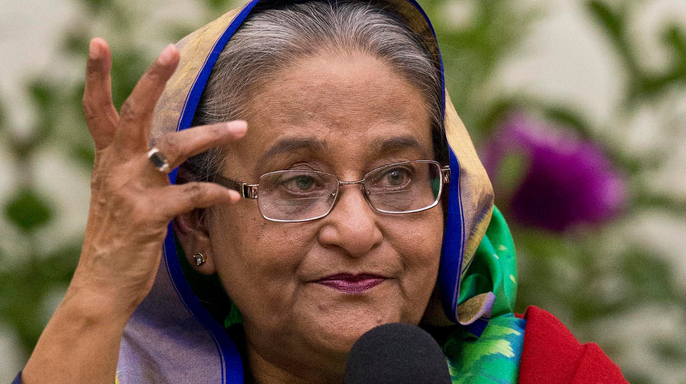Bangladesh’s Prime Minister Sheikh Hasina resigned on Monday, ending her 15-year rule as thousands of protesters defied a military curfew and stormed her official residence. The dramatic exit marks a significant shift in the nation’s political landscape, with plans for an interim government announced shortly after her departure.
Protests Erupt and Escalate
The unrest began with peaceful student protests demanding an end to the quota system for government jobs. However, the demonstrations quickly became a broader uprising against Hasina and her ruling Awami League party. The government’s attempt to quell the violence with force led to nearly 300 deaths, further fueling public outrage.
Military Steps In
After media footage showed Hasina boarding a military helicopter with her sister, Bangladesh’s military chief, Gen. Waker-uz-Zaman, announced plans to seek the president’s guidance on forming an interim government. He assured the public that the military would stand down and pledged to investigate the deadly crackdowns. “Keep faith in the military; we will investigate all the killings and punish the responsible,” Gen. Waker-uz-Zaman stated. He also ordered that no army or police personnel should fire at protesters.
Deadly Clashes and Rising Tensions
The capital, Dhaka, saw at least 95 fatalities, including 14 police officers, during Sunday’s clashes, according to Prothom Alo, a leading Bengali-language newspaper. Hundreds more were injured, and at least 11,000 people have been arrested in recent weeks. The unrest led to the closure of schools and universities and the imposition of a shoot-on-sight curfew at one point.
Calls for Non-Cooperation
Over the weekend, protesters initiated a “non-cooperation” movement, urging citizens not to pay taxes or utility bills and to avoid going to work on Sunday, a working day in Bangladesh. Despite these calls, offices, banks, and factories opened, but commuters faced difficulties reaching their destinations.
Hasina’s Attempts to Address the Crisis
Hasina offered to negotiate with student leaders on Saturday but was rejected. She reiterated her commitment to investigating the deaths and holding those responsible accountable. However, she labeled protesters engaging in “sabotage” as criminals, urging the public to deal with them harshly. “Now, the student must stay calm and help us,” Gen. Waker-uz-Zaman emphasized.
Internet Blackouts and Ongoing Turmoil
To control the situation, authorities shut down mobile internet on Sunday and briefly cut off broadband internet on Monday morning. This marked the second internet blackout since the protests turned deadly in July. Internet services were restored after a few hours of suspension.
Longest-Serving Leader’s Legacy
Sheikh Hasina, 76, was re-elected for a fourth consecutive term in January in an election boycotted by her primary opponents. This raised questions about the election’s fairness, with thousands of opposition members jailed beforehand. Despite her long tenure, Hasina’s opponents have accused her of becoming increasingly autocratic, leading to the current unrest.
Sheikh Hasina’s resignation marks the end of an era for Bangladesh. As the nation grapples with the aftermath of widespread protests and violence, the formation of an interim government under military guidance signals a new chapter. The promise to investigate the deadly crackdowns and restore peace remains crucial for the country’s stability.







